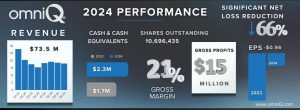
Bernadette Joy, CEO of Crush Your Money Goals, went from $300,000 in debt to earning her first million in just eight years — and it all started with one simple but powerful step: taking ownership of her finances.
But before her fortunes began to turn, Joy often felt like she was broke and that her finances were off track. As it turns out, many Americans can relate to this feeling — a recent survey from Empower found that 41% of Americans don’t consider themselves to be financially “well-off.”
By holding herself accountable and confronting the money mistakes that were quietly draining her wealth, Joy flipped the script on her financial future. And as a self-proclaimed “debt-free millionaire money coach,” her goal is to help others to do the same.
Here’s what Joy recommends you can do to stop overspending on common missteps and get your finances on the right track.
That shiny new credit card promising free flights, cash back galore and VIP lounge access might seem like a fast track to living your best life, but Joy warns her clients not to be fooled. Many of these credit cards come with hefty annual fees that can quietly chip away at your budget. On top of that, they often carry steeper penalties if you miss a payment, making them even more expensive over time.
While the perks may sound glamorous, they can quickly lose their luster if you’re not earning enough rewards to outweigh the cost — or worse, if the card nudges you into spending more just to “get your money’s worth.”
With U.S. credit card balances reaching $1.21 trillion by the end of 2024 — according to the Federal Reserve Bank of New York — it’s clear that debt is already a major financial hurdle for millions of Americans. Add on unnecessary fees, and you could be walking further away from your financial goals.
Read more: Are you rich enough to join the top 1%? Here’s the net worth you need to rank among America’s wealthiest — plus 2 ways to build that first-class portfolio
When it comes to investing, a lot of people jump straight into brokerage accounts without taking full advantage of tax-advantaged options like a 401(k), HSA or IRA.
